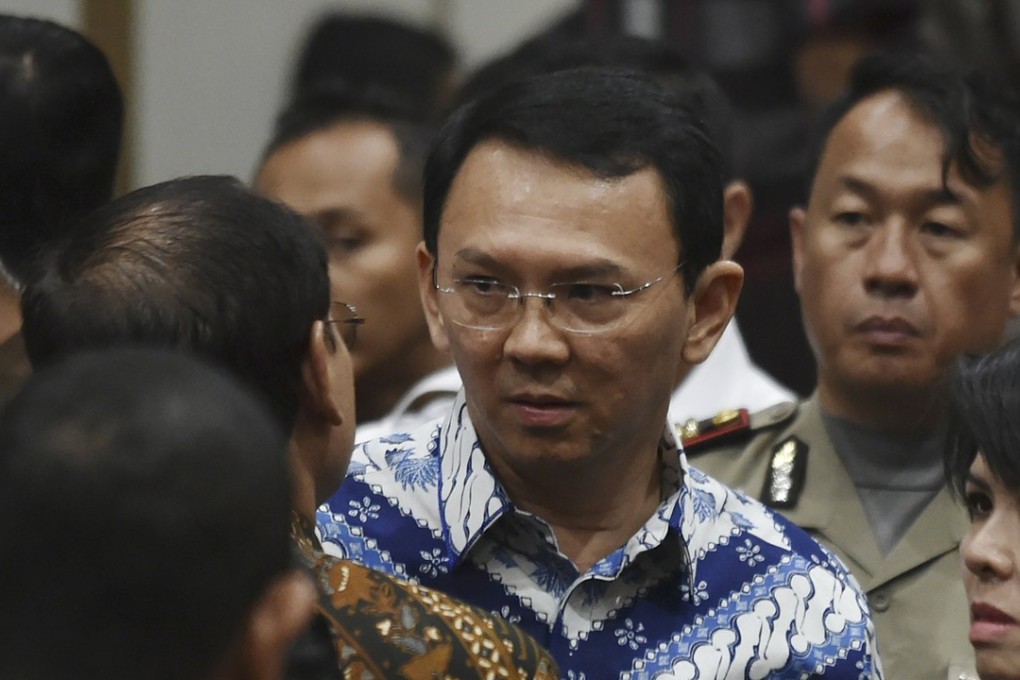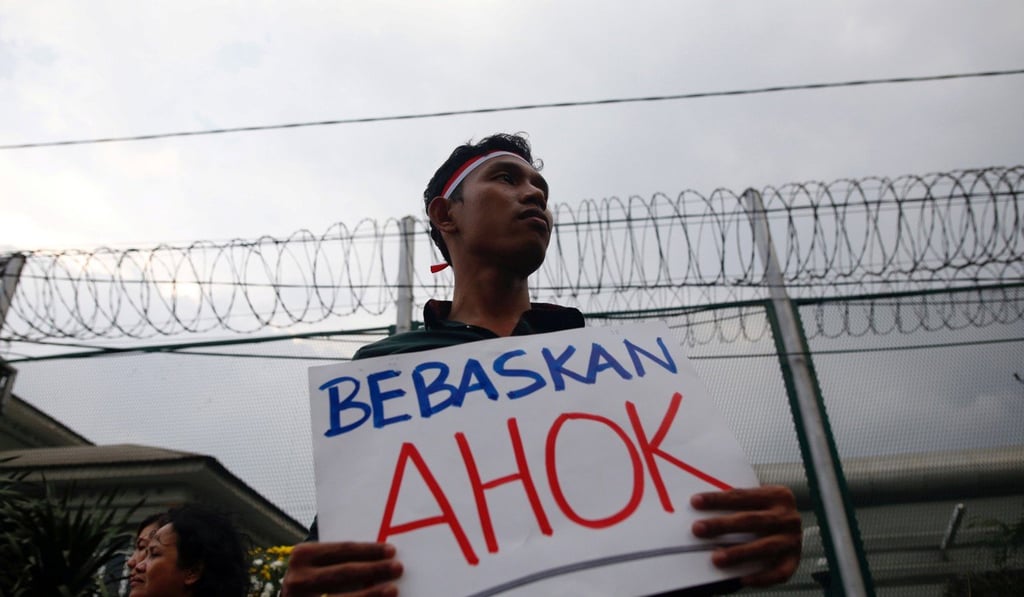Ethnic Chinese governor’s jail term for ‘insulting Islam’ stokes tensions in Indonesia
Imprisonment of Basuki ‘Ahok’ Purnama, Jakarta’s Christian leader, on blasphemy charges creates perception the judiciary has become part of rising intolerance in the Muslim-majority country

The North Jakarta District Court’s May 9 decision to sentence ethnic Chinese Jakarta Governor Basuki “Ahok” Purnama to two years’ imprisonment has turned him into a martyr for minority groups who are now wondering whether they belong to the country called Indonesia.
It isn’t just the way the panel of judges ignored the downgrading of the blasphemy charge, contentious as it still was, but by ordering Purnama’s immediate arrest they deprived him of serving out his last six months in office while his appeal is being heard.
Jail for Jakarta Governor Ahok over blasphemy against Islam
The verdict creates the inevitable perception that the judiciary, or at least parts of it, has become part of the rising intolerance in Indonesian society where the vast Muslim majority often acts like an easily-led minority on religious issues.
“It instantly sent a signal that non-Muslims are lesser citizens,” terrorism expert Sidney Jones wrote in a biting commentary. “It underscored the rot at the core of the legal system, the lack of progress made in judicial reform, and the weakness of constitutional guarantees of equality under the law.”
The government may now be concerned that its decision, made a day beforehand, to arbitrarily ban the radical Islamic organisation Hizbut Tahrir Indonesia (HTI) may be rejected by an equally conservative bench when it comes up for appeal.
